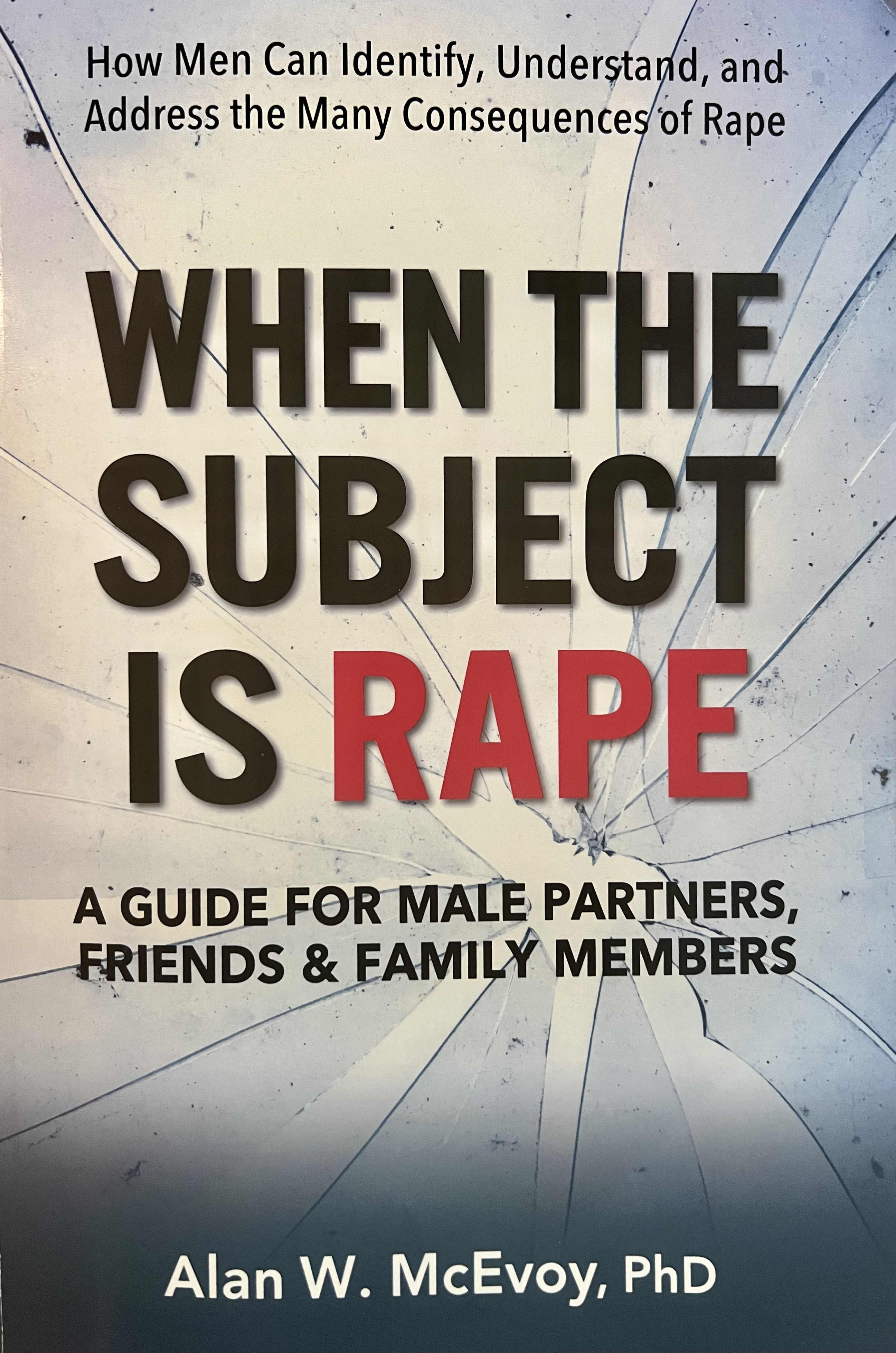When Alan McEvoy was in his early 20s, a close friend confided in him that she had been raped. He wanted to help, but said his good intentions collided with his ignorance. McEvoy quickly realized how ill-prepared he was to deal with the complexities and consequences of sexual violence, and to respond with the appropriate language, sensitivity and support that would make him a true ally in her recovery.
Recognizing that many men are similarly challenged in such cases, the professor emeritus of sociology at Northern Michigan University has written When the Subject Is Rape, a nonacademic, practical guide for helping loved ones forge a path through the associated trauma.
“When a woman or girl divulges that she's been sexually assaulted, it's an act of courage and trust on her part, and an invitation for understanding,” McEvoy said. “The best response is to let her know you believe her, you don't blame her for what happened, you'll stand by her, and you will trust her judgment to make good decisions during the recovery process. It's important to start with empathy and actively listen to see things from her perspective. She may no longer feel safe or temporarily be able to manage her daily routines. For couples, sexual intimacy is likely to be disrupted, and the fears and concerns around how to resume such intimacy that are rarely talked about are covered in this book.”
Although about one out of five women will experience sexual violence in her lifetime, the deficiency of knowledge on the subject among men is disheartening, McEvoy said. The realities of rape and its profound effects are rarely discussed in educational contexts, or through open and honest conversations with women or other men. This shroud of silence can lead well-intentioned partners, friends and family members to respond to rape in a way that inadvertently makes the situation more difficult.
“Few men who strive to be supportive know what to say or how to behave in the wake of sexual assault,” McEvoy said. “It's not that they're unsympathetic; they're just poorly informed because it's never been addressed. Too often, the tendency for men is to want to interrogate the victim and take charge of the situation—they feel they need to do something. They may even seek revenge against the perpetrator, which exacerbates the woman's already delicate emotional state because now she may worry about his safety and feels she can't talk to him about what happened because he gets so upset. Men need to trust that women have a tremendous power to heal, and men can help most by taking cues from her and letting her control that recovery.”
Throughout his career as a social scientist, McEvoy examined the impacts various forms of violence. He chaired a national conference on sexual assault on college campuses for 13 years. After retiring from NMU, he decided to focus on writing When the Subject Is Rape. The book is based on the disclosures of countless individuals whose lives have been upended by sexual violence. Women shared how their relationships with men have been affected, even if the rape happened years before. Men expressed understanding of the devastation rape inflicted on their loved ones, but also their frustration—even anger—at not being able to effectively help them.
“I felt there was a void in the literature in terms of addressing this topic in an accessible way that offers men an educational tool for how to respond. But this book also affirms the power of people to recover. It shows how men can help women shape a redemptive narrative so that the light of hope can emerge from the darkness. While aimed at a male audience, the information can be invaluable to anyone affected by sexual violence.”
McEvoy examines the short- and long-term emotional and psychological impacts that rape can have on a woman, what she can expect during the prosecution of her rapist, and strategies that can help her recover from the assault. It unravels the complex ways that sexual trauma can affect victims and offers helpful strategies for rebuilding relationships in the wake of such trauma. He discusses how men in her life should communicate with her, address her recovery needs, and conduct themselves in a way that avoids inflicting more pain. The book also explains how to identify changes in behavior that may signal an undisclosed rape.
In a review of the book, Publisher's Weekly called it "[an] insightful manual” that offers men tools to best support female rape victims. “McEvoy defines basic vocabulary and elucidates how victims can experience a variety of complicated emotions, from anger or shame to feelings of isolation. McEvoy handles his topic with sensitivity and is careful not to overstate the man's role in the healing process—it's vital for women to maintain total agency throughout—while still making clear that they can play an important support role. This is an ideal road map for male partners or friends who want to help, but don't know where to start."
McEvoy is the author or coauthor of numerous works on rape, child abuse, intimate partner violence, toxic romantic relationships, youth suicide and bullying. He has appeared on The Oprah Winfrey Show, 20/20 and many other national and regional television programs, and has also served as an expert witness in litigation involving violence in schools. He currently resides in Marquette, Mich.
When the Subject is Rape is published by SquareOne and available in paperback here for $17.95.


